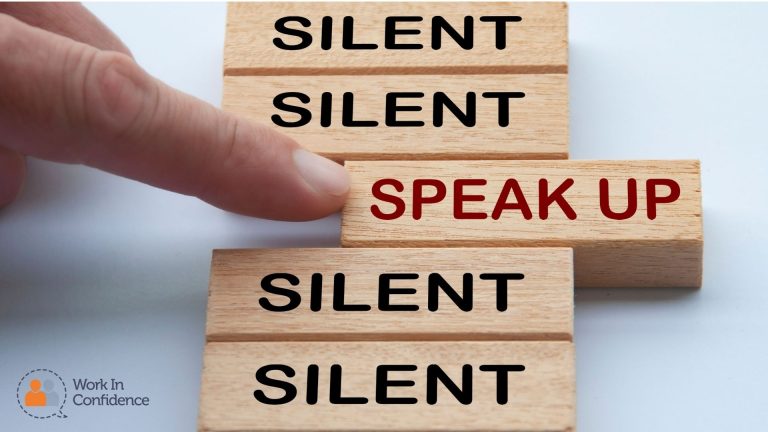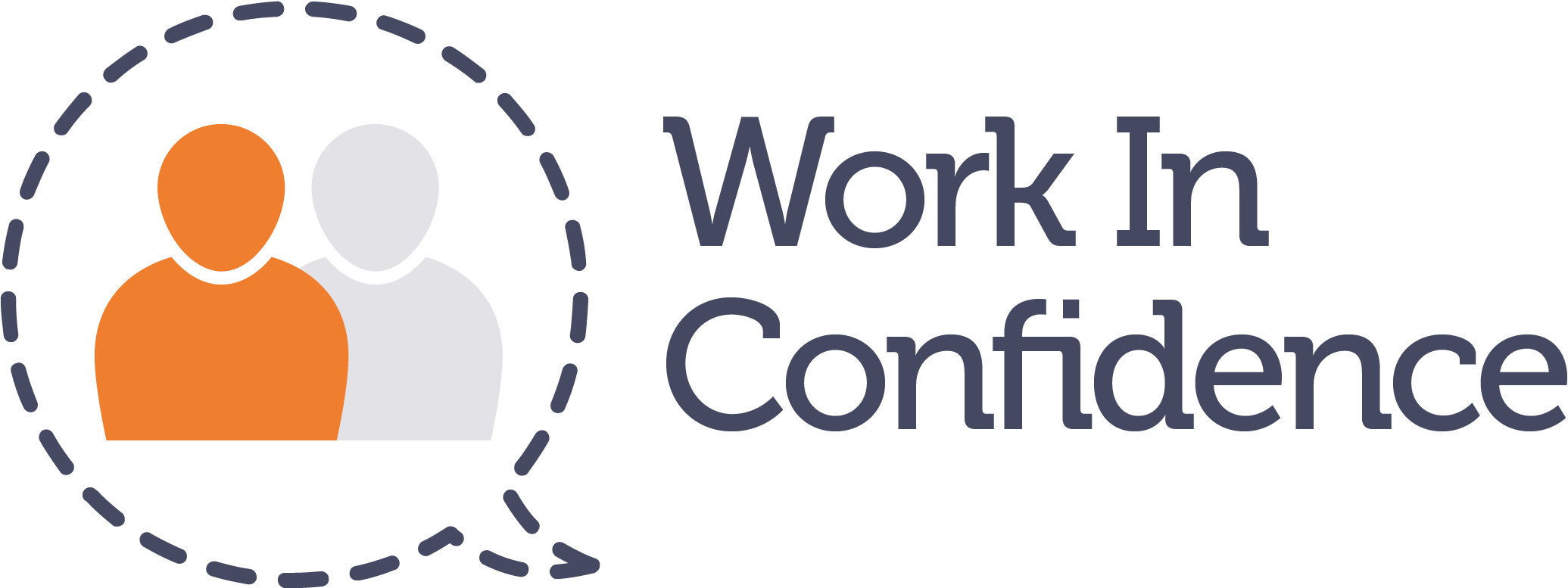Written by Tim Martin, WorkInConfidence
What is a Whistleblower?

The term Whistleblower” actually dates back to the 19th century when policeman used whistles to alert citizens about riots. But the word gained its modern meaning in the 1960s when journalists began to use it to refer to people who revealed wrongdoing. (*Source Anyday Guide).
“Whistleblower” might sound a bit dramatic, but at its core, it’s simply someone who speaks up when something is wrong.
Whether it’s fraud, misconduct, safeguarding concerns, or unethical behaviour, whistleblowers play a vital role in protecting people, reputations, and their employers. Being able to speak up should not require courage; it should be routine.
But here’s the problem: Many employees still don’t feel safe or supported to speak up. So, on 23rd June – World Whistleblower Day, let’s look at the importance of having a Speak-up Culture.
What Are the Consequences of People Not Speaking Up?
When employees don’t feel able to speak up, the consequences can be serious — for individuals, teams, and organisation as a whole.
Here are just some of the risks:
Harm Goes Unchecked
Whether it’s bullying, discrimination, fraud, safety breaches or safeguarding concerns — if no one speaks up, the problem continues. Often, it escalates.
Organisational Reputation and Trust Are Damaged
Issues that could have been quietly resolved internally often become public scandals. Once trust is broken with employees, customers, or the public — it’s hard to regain as people tend to have long memories.
Financial and Legal Consequences
Unchecked misconduct can lead to costly investigations, regulatory fines, tribunals, or even criminal charges. Silent cultures can cost millions.
Employee Morale and Engagement Plummet
When people see wrongdoing and feel powerless to challenge it, morale drops. Good people leave. Toxic culture spreads. Productivity and innovation suffer. And the effect on the wellbeing of the employee can extend far beyond their work life, as worries often impact their personal lives too.
Leaders Miss Out on Vital Insight
When people stay silent, leadership loses visibility of what’s really going on in their company. That leads to poor decision-making and a disconnect between strategy and reality.
The bottom line: silence is not neutral. It’s risky. It’s simple: If employees don’t feel safe, they won’t speak. And if they don’t speak, leaders can’t lead effectively
Creating a Speak-Up Culture
Employers must go beyond passive compliance and actively create a culture of openness. This starts with providing multiple accessible channels to enable employees to raise concerns, ideally including the ability to remain anonymous if they choose.
In today’s complex workplace environments, creating a culture where people feel safe to speak and raise their concerns isn’t just “nice to have”, it’s a business and leadership essential.
A well-designed speak-up platform can allow individuals to approach an appropriate manager or team safely, without needing to escalate directly to an external whistleblowing channel, causing reputational harm.
How Can Providing an Anonymous Speak Up Channel Make a Difference?
Giving employees a safe, anonymous way to speak up isn’t just about ticking a compliance box — it fundamentally changes the culture of an organisation. Here’s how:
1. It Lowers the Barrier to Speaking Up
Many employees stay silent because they fear backlash, judgement, or being labelled a troublemaker. An anonymous channel removes that fear and gives people a voice — even if they’re not ready to be identified.
2. It Surfaces Issues You Wouldn’t Otherwise Hear About
Without a safe route, many concerns never reach leadership. Anonymous reporting lets you catch problems early — before they escalate into serious risks or public scandals.
3. It Signals That Leadership is Open to Feedback
Offering a way to speak up anonymously shows employees you’re serious about listening — not just when it’s convenient, but even when it’s uncomfortable.
4. It Builds Trust and Psychological Safety
Over time, employees begin to see that speaking up leads to action — and that’s what builds trust. Eventually, many don’t need anonymity — but they need it to have the confidence to start. Importantly, these systems should allow for gradual and progressive disclosure. Having this flexibility fosters psychological safety.
5. It Provides Valuable Insights for Leaders
An anonymous speak up platform can highlight patterns, reveal culture gaps, and give you honest, unfiltered feedback that traditional surveys often miss.
Anonymous channels help organisations create a space where every voice can be heard, and where problems can be addressed early, fairly, and constructively. Ultimately, the goal is not just to respond to whistleblowing, but to minimise the need for it, by making sure that speaking up is part of everyday work life.
To learn more about how our two-way anonymous reporting solutions and case management tools can support your organisation to empower employee voice and give you valuable insights into your organisational culture, visit our website or get in touch with me for a chat. Call: 0845 38310113 or Email: Sales@workinconfidence.com
A safe and secure two-way anonymous channel for your people to raise concerns via phone, tablet, or PC, ensuring you are aware of any workplace issues and can respond quickly and accordingly
Easily set up, run and interpret surveys on engagement, respect, wellness or other topics to ensure you always understand your people, their needs and motivations.
A secure phone line with a dedicated Speak Up Guardian for your employees to raise concerns with. We also provide training in Freedom to Speak Up, Speaking up and safeguarding processes.
